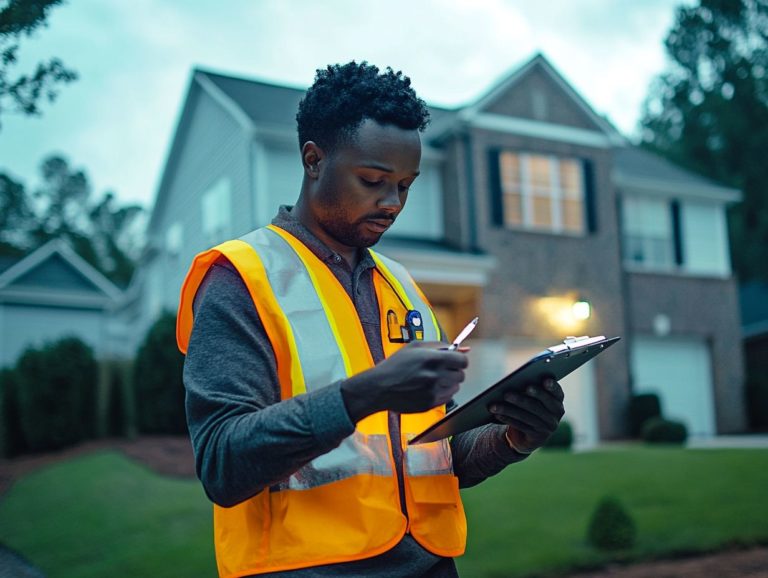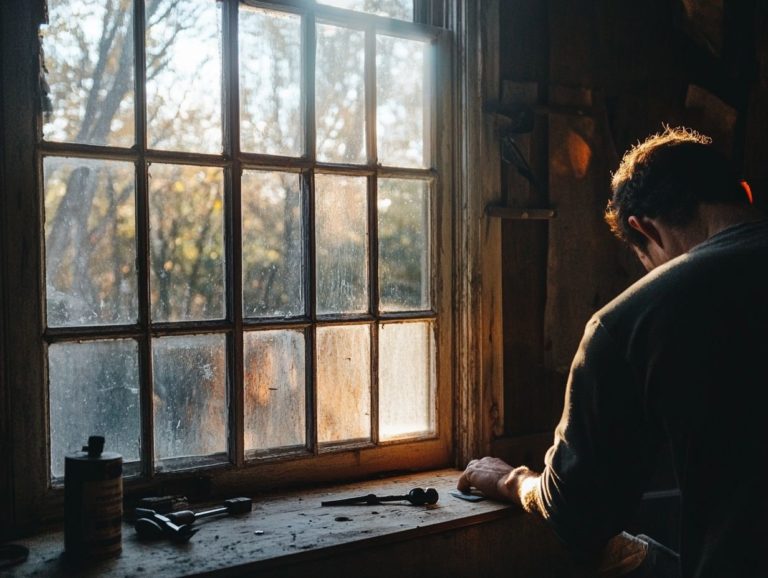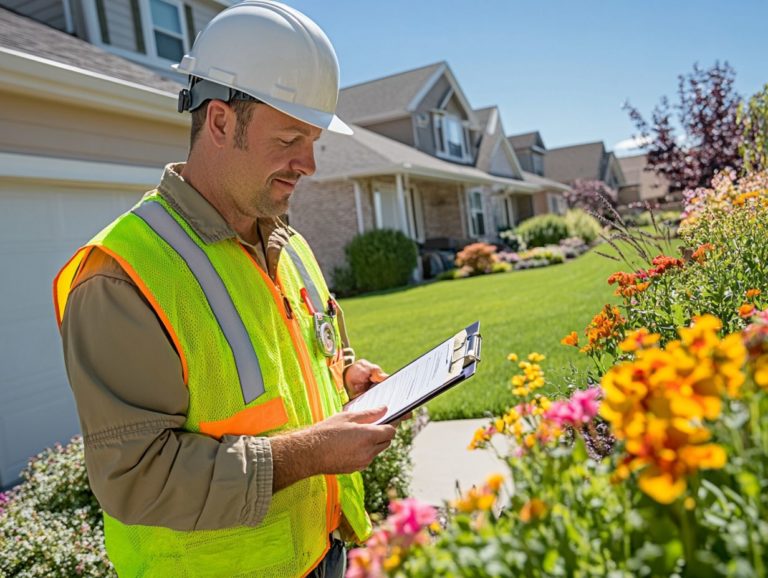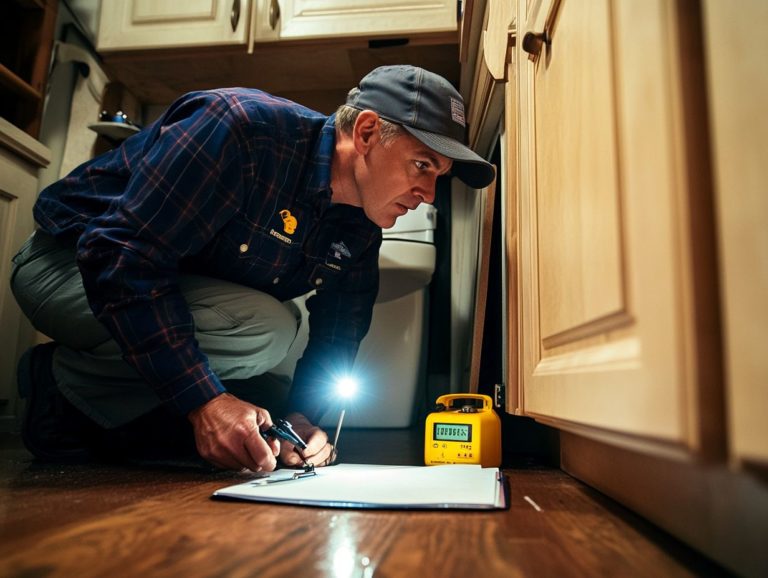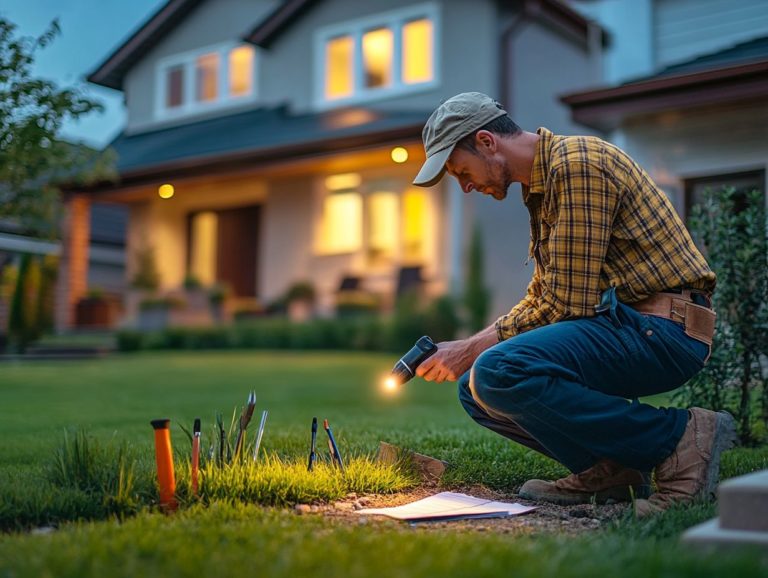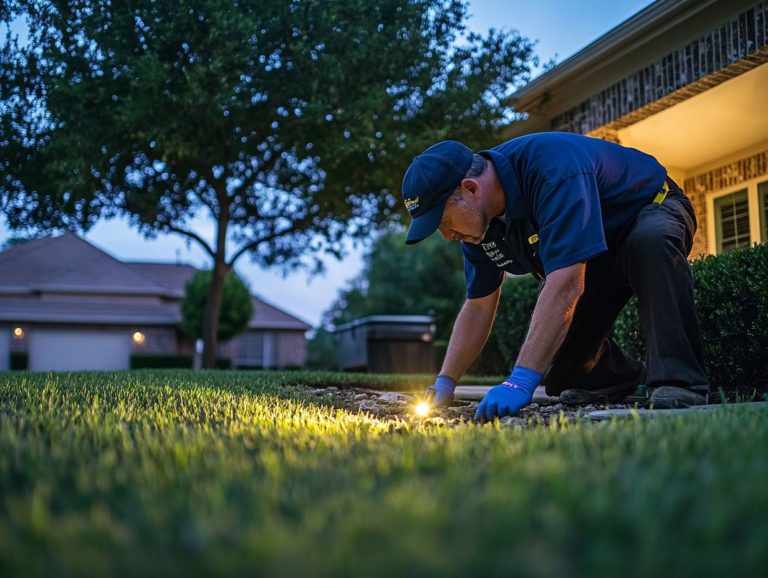Understanding the Home Inspection Process
Buying or selling a home marks a pivotal moment in your life, and grasping the home inspection process is essential for making informed decisions.
This article provides you with everything you need to know about home inspections, covering their purpose, importance, and when they become necessary.
It guides you through the inspection process, detailing what to expect in a report and how to interpret the findings. It also offers valuable tips on preparing for an inspection and selecting the right inspector.
Get ready to confidently navigate this crucial step in your real estate journey!
Contents
Key Takeaways:
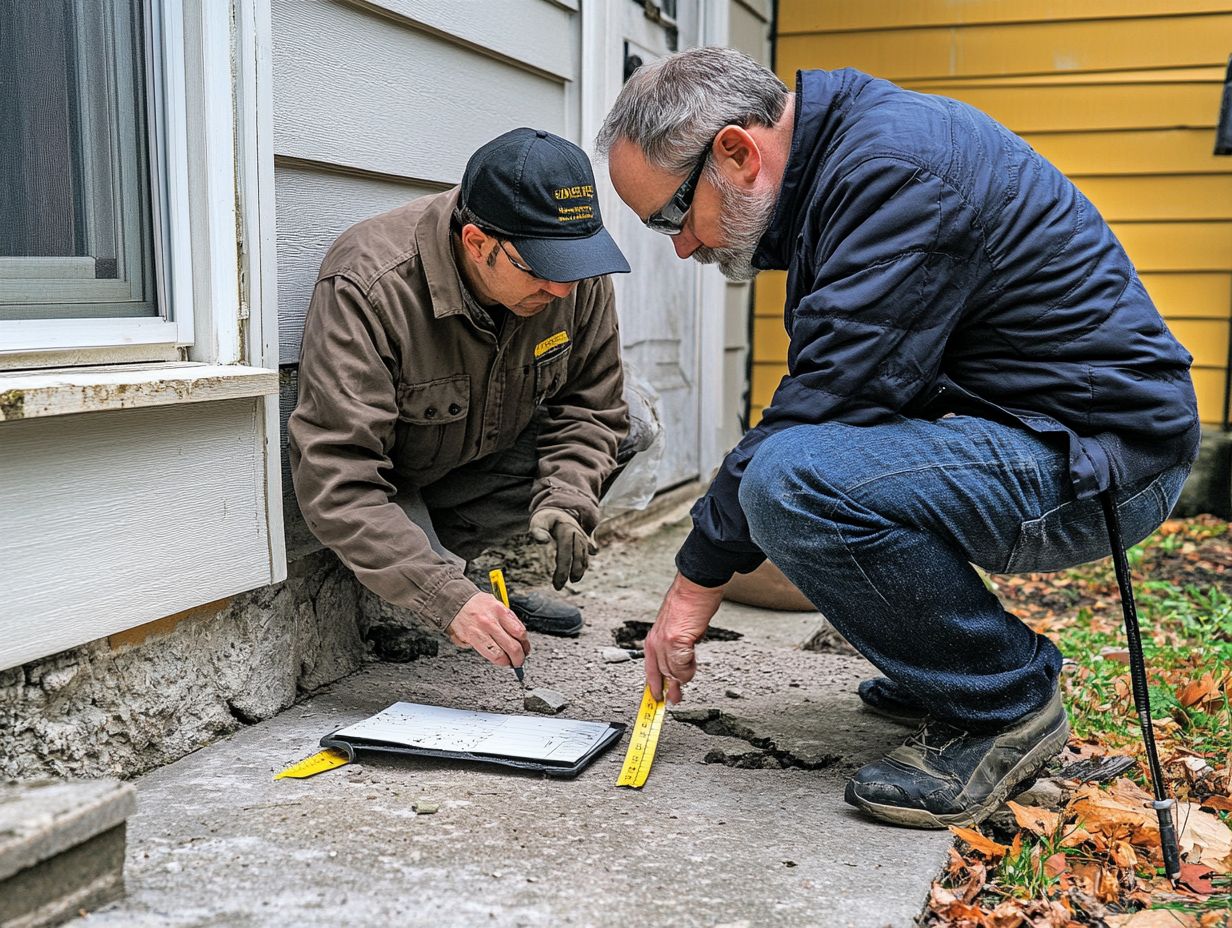
A home inspection evaluates a property’s condition, spotting potential issues and needed repairs. It is a crucial step you can t afford to skip!
A home inspection should be scheduled when buying or selling a property, before finalizing a purchase or listing. Common triggers for an inspection include real estate contracts, mortgage applications, and insurance requirements.
The home inspection process typically includes a step-by-step evaluation of the property’s exterior, interior, systems, and structural components. To navigate this effectively, understanding the home inspection process is essential, as it helps you carefully review and address any necessary repairs noted in the inspection report.
What is a Home Inspection?
A home inspection is an essential part of the home-buying journey, allowing you to thoroughly assess the condition of a property and pinpoint any potential defects. For more details on this critical step, check out understanding the home inspection process timeline before making that final commitment.
Conducted by a qualified home inspector, this detailed evaluation covers a wide range of aspects, including structural integrity, heating, ventilation, and air conditioning (HVAC) systems, plumbing, and electrical systems.
This meticulous process uncovers any safety concerns or significant issues that could impact your investment, ensuring you make an informed decision.
Purpose and Importance
The primary purpose of a home inspection is to equip you with a clear understanding of the property’s condition, ensuring you’re fully aware of any serious issues that might necessitate future repairs. For sellers, understanding the home inspection process can be crucial in navigating these concerns effectively.
This process boosts your confidence in your investment and plays a vital role in determining your purchasing eligibility.
With a comprehensive report from a qualified inspector in hand, you can negotiate repairs or price adjustments with the sellers, creating a significant leverage point that can influence the terms of the sale.
The insights gained during the inspection empower you, allowing for effective collaboration with your real estate agent. Together, you can assess which issues are negotiable and which might lead you to reconsider the purchase altogether, ultimately guiding you toward a more informed decision regarding the importance of home inspections for a satisfactory outcome.
When is a Home Inspection Necessary?
Home inspections are essential throughout different phases of your home-buying journey. They often arise due to specific conditions, such as negotiation agreements, inspection contingencies, or seller disclosures, particularly in a competitive market.
Common Triggers for Inspection
Common triggers for a home inspection often include the presence of an inspection contingency in the purchase agreement, seller disclosures that hint at potential issues, and the prevailing market conditions that might make you more cautious as a buyer.
In a competitive housing market, where bidding wars are the norm, you might feel the pressure to waive inspections just to secure a favorable deal. However, this can lead to costly surprises down the line, which is why it s essential for buyer agents to champion the need for inspections, no matter how heated the market gets.
If you re considering an older home or one in a neighborhood with known concerns, the importance of a thorough inspection becomes even clearer. The role of buyer agents in guiding you through these decisions is vital, ensuring you are fully informed about potential pitfalls and the critical importance of inspections in protecting your investment.
The Home Inspection Process
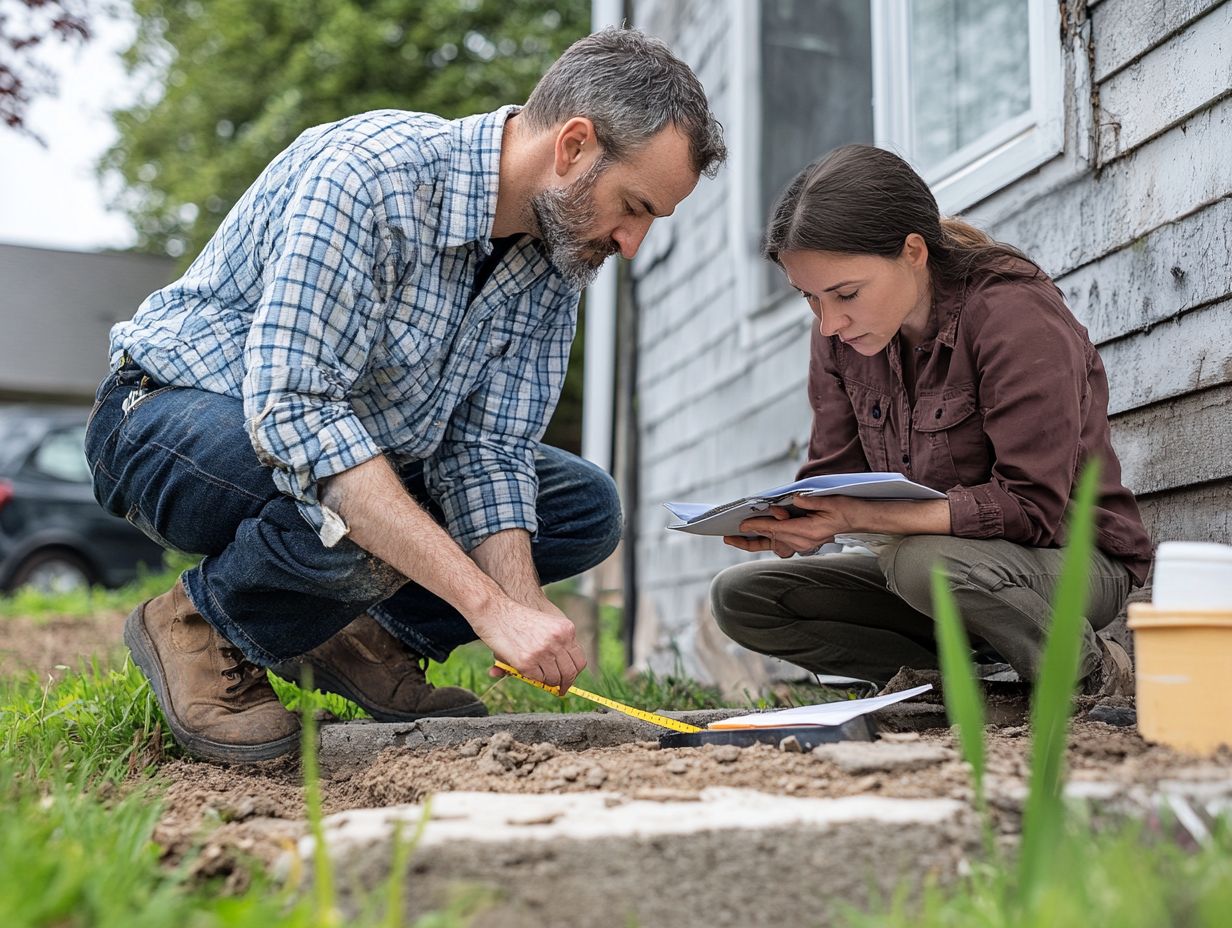
The home inspection process is a meticulous evaluation conducted by a qualified home inspector.
This comprehensive assessment typically spans a few hours and employs a detailed checklist that thoroughly examines the critical elements of the property.
Don t delay schedule your home inspection today!
Step-by-Step Guide
A home inspection process involves finding a qualified inspector and preparing a checklist. It’s important to ensure that critical systems, like HVAC, plumbing, and electrical, are examined for safety concerns. For a comprehensive overview, refer to understanding the home inspection process for buyers.
Each step is essential for protecting you from unexpected costs and hazards. Careful checks of structural components, like foundation cracks or roof damage, may save you from huge repairs later.
Identifying pest infestations during the inspection is also crucial. Unseen termites or rodents can compromise your home s integrity.
A detailed inspection checklist allows inspectors to evaluate everything systematically. This approach helps you make informed decisions and brings peace of mind during your home-buying journey.
What is Included in a Home Inspection Report?
A home inspection report is a thorough document summarizing the findings from your inspection.
It categorizes issues into three groups: minor defects, major concerns, and potential safety hazards that could require future repairs.
Key Components and Information Provided
The report includes a thorough assessment of the property’s condition and identifies safety concerns. A detailed checklist helps guide the inspection process.
These elements are essential for you as a buyer. They help you understand the home s condition before making a purchase.
For instance, knowing the roof’s age can indicate future repair needs, which might help in negotiations.
Issues like faulty wiring or plumbing can be safety hazards and may allow you to request price reductions.
By focusing on these details, you ll understand potential long-term expenses, empowering you to make informed financial decisions.
Interpreting and Addressing Inspection Findings
Understanding inspection findings requires a keen eye. Differentiate between serious concerns and minor cosmetic issues that can be negotiated.
This approach helps you navigate the inspection process confidently.
Understanding the Severity of Issues
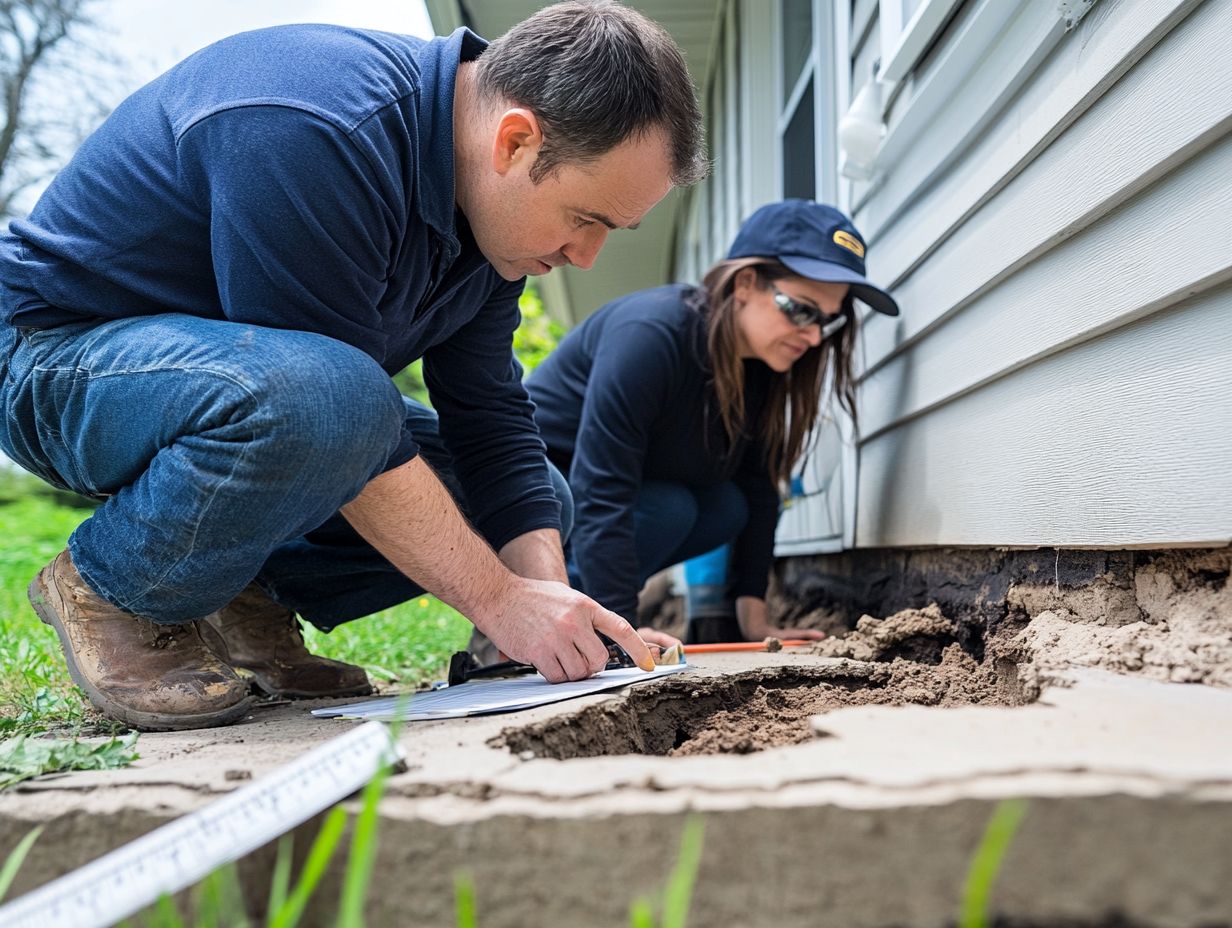
Understanding the severity of issues found in a home inspection is vital for you as a buyer. It helps you recognize serious problems that need immediate attention versus minor issues that can wait.
This evaluation informs your decisions and impacts negotiations. Major findings like structural damage pose risks to your finances and safety.
On the other hand, cosmetic issues may not carry the same weight. This gives you room to request repairs or price reductions without jeopardizing the deal.
Identifying which issues are deal-breakers versus negotiable is crucial for achieving a favorable outcome in property transactions.
Choosing a Home Inspector
Selecting a qualified home inspector is a crucial step in your buying journey. To ensure you’re well-informed, it’s also helpful to review understanding the home inspection timeline. Consider the inspector’s experience, the thoroughness of their checklist, and the cost of the inspection.
These factors are vital for making an informed choice in this important process.
Factors to Consider and Questions to Ask
When you re selecting a home inspector, there are several important factors to consider, including the inspector’s experience, qualifications, inspection checklist, and the costs involved. These elements are essential for making a well-informed decision that safeguards your investment.
Understanding the inspector’s experience can offer you peace of mind, as it reflects their capability to spot potential issues. You should inquire about specific qualifications and certifications that validate the inspector s expertise.
Discussing the inspection checklist reveals what areas will be evaluated. Asking the right questions helps you assess potential inspectors thoroughly, ensuring you have a comprehensive understanding of the property s condition.
Preparing for a Home Inspection
Preparing for a home inspection is a crucial step in facilitating a seamless inspection experience. As a home buyer, you can take proactive measures by thoroughly reviewing seller disclosures and crafting a detailed inspection checklist.
This preparation boosts your understanding of the property. It also helps you spot any potential concerns early.
Tips for a Smooth Inspection Process
Stay in close contact with your inspector to ensure a smooth inspection. An organized checklist will help address key concerns efficiently.
This collaborative approach allows everyone involved to align their expectations and focus on the specific areas that require attention. Maintaining clear communication channels helps eliminate misunderstandings, ensuring you feel informed and confident throughout the entire process.
An organized inspection checklist is an invaluable tool that guides the inspector in covering essential aspects such as plumbing, electrical systems, and structural integrity.
By establishing a checklist early on, you streamline the process and empower yourself to ask relevant questions. This leads to insightful discussions that can ease any potential worries you may have.
Frequently Asked Questions
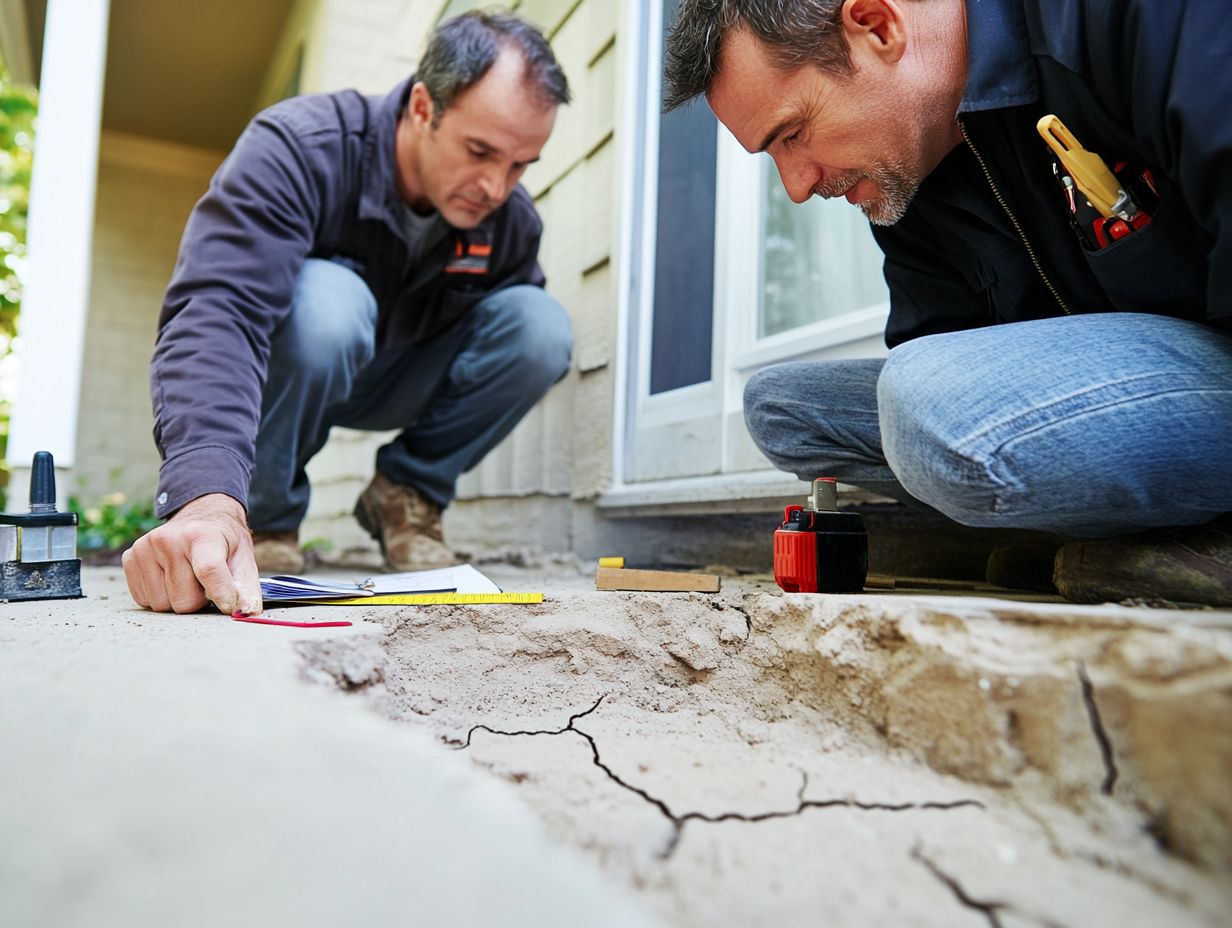
What is the purpose of a home inspection?
A home inspection is a detailed check-up of a property’s condition. The purpose is to inform potential buyers about any issues or deficiencies with the home before finalizing the purchase, making it crucial to understand the home inspection report.
Who typically conducts a home inspection?
A licensed and certified home inspector someone trained in identifying potential problems with a property conducts a home inspection. It is recommended to hire a professional home inspector rather than relying on the seller’s assessment.
What does a home inspection cover?
A home inspection typically covers the structure, exterior, roofing, plumbing, electrical systems, heating and cooling systems, interior, insulation and ventilation, and fireplaces. It also includes a check for any potential safety hazards.
How long does a home inspection take?
The duration of a home inspection can vary depending on the size and condition of the property. On average, a home inspection can take anywhere from two to four hours to complete.
Do I need to be present during the home inspection?
While it is not required for the buyer to be present during a home inspection, it is highly recommended. Being present allows you to ask questions and discuss any concerns with the inspector directly.
Can a home inspection be waived?
It is not advisable to waive a home inspection. While it may seem like a way to save money, a thorough inspection can potentially save you from costly repairs or unexpected issues with the property in the future.
Ready to schedule your home inspection? Contact us today!

